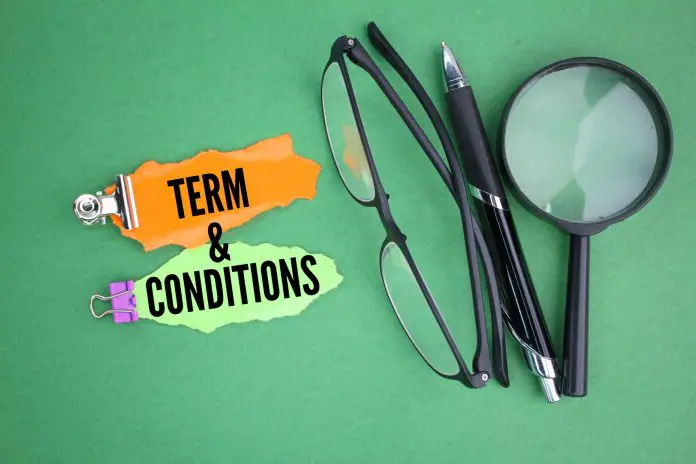Key Takeaways

- Understanding the Importance: Website terms of use outline the rules governing your interaction with a site, crucial for protecting user rights and privacy.
- Components of Terms: Key elements include user rights, responsibilities, limitations of liability, and intellectual property rights, which create a clear legal framework.
- User Guidelines: Specify acceptable and prohibited activities to maintain a safe environment and clarify ownership of user-generated content.
- Dispute Resolution: Include processes for resolving conflicts, such as mediation or arbitration, to maintain strong relationships and manage risks effectively.
- Best Practices for Drafting: Emphasize clarity and accessibility in your terms, use plain language, and regularly update them to remain compliant with legal standards.
- Consult Legal Experts: Engage legal professionals during drafting and revisions to ensure comprehensive protection for your business and compliance with regulations.
When you visit a website, you might click through the terms of use without a second thought. But understanding these terms is crucial for protecting yourself and your rights online. They outline the rules governing your interactions with the site and can impact everything from your privacy to your ability to engage with the content.
Website terms of use serve as a contract between you and the site owner, detailing what’s expected from both sides. Whether you’re a casual visitor or a frequent user, knowing these terms can help you navigate the digital landscape with confidence. In this article, we’ll break down the essential elements of website terms of use and why they matter to you.
Understanding Website Terms of Use

Understanding website terms of use is crucial for users, including small business owners. These terms establish the legal framework for your engagement with the website and help safeguard your interests.
Definition of Terms of Use
Terms of use, often referred to as terms and conditions, outline the rules and regulations that a user agrees to follow when accessing a website. These documents typically include information about user rights, ownership of content, acceptable use policies, and limitations of liability. By accepting these terms, you create a binding agreement with the site owner, ensuring a clear understanding of your responsibilities and rights.
Importance of Terms of Use
Terms of use play an essential role in protecting both the service provider and the user, especially for small businesses leveraging technology. They govern copyright issues, liability, and acceptable usage, helping to prevent disputes. They also safeguard your personal information through privacy policies, ensuring compliance with regulations like GDPR or CCPA. Understanding these terms minimizes risks associated with using online platforms, making it vital for informed engagement with any website.
Key Components of Website Terms of Use

Understanding the key components of website terms of use benefits your small business’s online presence. You’ll establish a clear legal framework that protects both you and your users.
User Rights and Responsibilities
Your terms of use should specify user rights and responsibilities. Specify what users can and can’t do on your website. Outline guidelines for:
- User-generated content: Clarify ownership and usage rights for content users submit.
- Account registration: Explain required information for creating an account and emphasize users’ responsibility for maintaining their account security.
- Prohibited activities: List activities like spamming, hacking, or other disruptive behaviors to maintain a safe and respectful environment.
- Compliance with laws and community guidelines: Stress that users must adhere to applicable laws and your website’s policies.
Limitations of Liability
Incorporating a limitations of liability clause protects your small business from various legal issues. This clause limits your liability for damages or inaccuracies on your website, ensuring users understand that you aren’t responsible for external links, third-party content, or user conduct.
Intellectual Property Rights
Addressing intellectual property rights is crucial for small businesses operating online. Clearly outline who owns the content on your website, including text, graphics, and software. Protect your business by requiring users to respect your intellectual property and prohibiting unauthorized use or distribution.
Common Provisions Found in Terms of Use

Understanding the common provisions in website terms of use helps you manage risk and protect your small business. These sections outline user responsibilities and clarify acceptable conduct on your site.
Acceptable Use Policy
An acceptable use policy clearly defines what users can do on your website. You typically allow users to engage in activities like browsing products and participating in services. Prohibited actions include using the site for illegal purposes, spamming, or attacking the site through technology like harmful software. Clearly stating these permissions establishes expectations that enhance user experience and safeguard your business.
Termination of Use
A termination clause provides a framework for ending user access to your site when necessary. You should include conditions that justify termination, such as violating terms or engaging in prohibited activities. This clause empowers your small business to protect its interests and manage its community effectively by addressing non-compliant behavior.
Dispute Resolution
The dispute resolution section outlines how conflicts between users and your business are managed. You may encourage users to resolve issues through mediation or arbitration before pursuing legal action. Providing this avenue can facilitate quicker, more cost-effective resolutions, ensuring your small business can maintain strong relationships while protecting its interests.
Best Practices for Drafting Website Terms of Use

Understanding the best practices for drafting website terms of use is vital for small businesses. These practices ensure clarity, accessibility, and compliance while protecting your interests and those of your users.
Clarity and Accessibility
Clarity and accessibility form the foundation of effective terms of use:
- Use Plain Language: Write terms in plain language. Avoid legal jargon that may confuse users. This approach makes your obligations and users’ rights easier to comprehend.
- Clear Headings and Significant Elements: Implement clear headings. Use bold formatting for significant elements to enhance navigation. Users can quickly find essential information about their rights and responsibilities.
- Accessibility: Ensure your terms of use are easily accessible on your website. Place a link on every page or require acceptance during registration. This transparency allows users to engage with your site fully informed of the governing terms.
Regular Updates and Revisions
Regular updates and revisions are essential for maintaining relevance and legality:
- Review Frequency: Review your terms of use at least annually. Revisions reflect any changes in your business model, technology, or applicable laws.
- Notifications About Changes: Notify users of significant changes. Use pop-up alerts or email notifications. This practice builds trust and ensures compliance with current regulations, like GDPR and CCPA.
- Engagement with Legal Experts: Engage with legal experts during revisions. Their insights help ensure that your terms meet the latest legal requirements while protecting your small business’s interests.
Implementing these best practices enhances your small business’s online presence and fosters user satisfaction and trust.
Conclusion

Understanding website terms of use is essential for anyone engaging with online platforms. These terms not only protect your rights as a user but also establish a clear framework for how you can interact with the site. By familiarizing yourself with these agreements you can minimize risks and make informed decisions about your online activities.
For small business owners it’s particularly important to have well-defined terms that safeguard both their interests and those of their users. Regularly reviewing and updating these terms ensures compliance with evolving laws and enhances user trust. By prioritizing clarity and accessibility you can create a positive online experience for everyone involved.
Frequently Asked Questions

What are website terms of use?
Website terms of use are legal agreements between users and website owners, outlining rules for interactions and defining user rights, responsibilities, and limitations. They act as a contract to protect both parties, especially regarding liability and content ownership.
Why are terms of use important for users?
Terms of use inform users about their rights, privacy policies, and acceptable behavior on the website. Understanding these terms helps users engage responsibly and reduces potential legal risks, creating a safer online environment.
How do terms of use protect small businesses?
Terms of use protect small businesses by outlining acceptable user behaviors, intellectual property rights, and limitations of liability. These provisions help manage risks, ensure compliance with privacy laws, and foster a secure online community.
What key components should be included in terms of use?
Key components of terms of use should include user rights and responsibilities, limitations of liability, acceptable use policies, intellectual property rights, and dispute resolution procedures. These elements create a balanced framework for user engagement.
How often should terms of use be updated?
Terms of use should be reviewed and updated regularly to reflect any changes in laws or business practices. Regular updates ensure ongoing compliance and relevance, while also keeping users informed about their rights and responsibilities.
Can users negotiate the terms of use?
Typically, terms of use are presented as a standard agreement, and users cannot negotiate these terms. However, businesses may be open to feedback or adjustments in certain situations, so it’s worthwhile to communicate specific concerns.
How should businesses draft their terms of use?
Businesses should draft clear, concise terms of use using plain language to minimize legal jargon. It’s essential to organize information with clear headings, make the terms easily accessible, and consult legal experts to ensure compliance with laws.
What happens if a user violates the terms of use?
If a user violates the terms of use, businesses may take actions such as suspending or terminating user access. The terms should outline the consequences of violations and the process for managing such situations to maintain community standards.
Image Via Envato: tonodiaz, YuriArcursPeopleimages, prathanchorruangsak, Freedomtumz, Pressmaster, fauziEv8, wirestock



